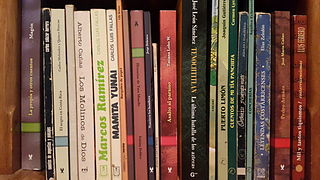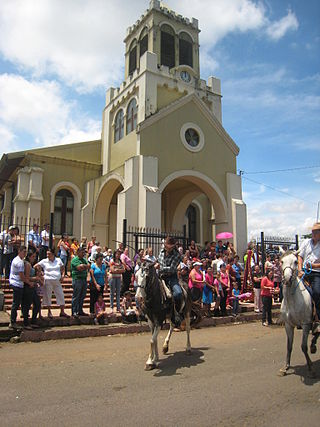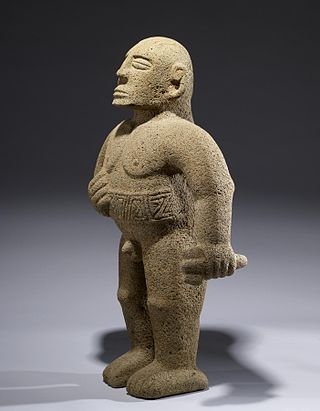
San José is the capital and largest city of Costa Rica, and the capital of San José Province. It is in the center of the country, in the mid-west of the Central Valley, within San José Canton. San José is Costa Rica's seat of national government, focal point of political and economic activity, and major transportation hub. San José is simultaneously one of Costa Rica's cantons, with its municipal land area covering 44.62 square kilometers and having within it an estimated population of 352,381 people in 2022. Together with several other cantons of the central valley, including Alajuela, Heredia and Cartago, it forms the country's Greater Metropolitan Area, with an estimated population of over 2 million in 2017. The city is named in honor of Joseph of Nazareth.

The National Anthem of the Republic of Costa Rica, also known by its incipit as "Noble patria, tu hermosa bandera", was first adopted in 1852. Its music was composed by Manuel María Gutiérrez Flores, who dedicated the score to French adventurer Gabriel-Pierre Lafond de Lurcy. The music was created to receive delegates from the United Kingdom and the United States that year for the Webster-Crampton Treaty. It was the first Central American national anthem.

Alexandre Henrique Borges Guimarães is a Costa Rican football manager and former player who played as a midfielder. He is the current head coach of Alajuelense.
Gladys Rodríguez is a Puerto Rican actress, comedian, and television host. She is also a Christian pastor and a priest at an Episcopalian church in Oviedo, Florida, near Orlando, United States.

Joaquín Gutiérrez Mangel was a Costa Rican writer who won multiple awards, and whose children's book Cocorí has been translated into ten languages. In addition to writing children's books, Gutiérrez was a chess champion, war correspondent, journalist, story-teller, translator, professor, and communist activist.

Carmen Lyra was the pseudonym of the first prominent female Costa Rican writer, born María Isabel Carvajal Quesada. She was a teacher and founder of the country's first Montessori school. She was a co-founder of the Communist Party of Costa Rica, as well as one of the country's first female worker's unions. She was one of the earliest writers to criticize the dominance of the fruit companies. She won many prizes.
The 1963 CONCACAF Championship was the first edition of the CONCACAF Championship, the football championship of North America, Central America and the Caribbean (CONCACAF). The tournament was held between 23 March to 7 April. Nine teams participated in the inaugural event.

Alajuelita is a canton in the San José province of Costa Rica.

Santa Ana is the ninth canton in the San José province of Costa Rica. It is located in the Central Valley. It borders with the Alajuela canton to the north, the Mora canton to the south and west, the Escazú canton to the east, as well as the Belén canton to the north east. As of 2022, the canton has the highest Human Development Index of any region in Costa Rica with a score of 0.871.

Jorge Eduardo Arroyo-Pérez is a Costa Rican writer, playwright, opinion columnist, essayist, poet and theater director. He is currently Costa Rica's ambassador to UNESCO.
Alberto Cañas Escalante was a politician, writer, intellectual, public servant, and journalist from San José, Costa Rica. He is known as one of the most important figures in the cultural, political, and social life of Costa Rica during the latter half of the twentieth century. The National Library System of Costa Rica credits Cañas with more than 4,773 publications as of 2005.

Costa Rican literature has roots in colonization and is marked by European influences. Because Costa Rica is a young country, its literary tradition is also young. The history of Costa Rican literature dates to the end of the 19th century.

Pejibaye is a district of the Jiménez canton, in the Cartago province of Costa Rica.

San Pedro, is one of the six districts of the Santa Bárbara canton, in the Heredia province of Costa Rica. It is located 2.5 kilometers (1.6 mi) west of Santa Bárbara and is officially a part of the province of Heredia. The elevation is approximately 1,080 meters (3,540 ft) above sea-level.

Benjamín Gutiérrez is a celebrated composer in Costa Rica. He is a conductor, composer, and pianist. Gutiérrez began by studying music with his grandmother, Rosa Jiménez Nuñez, daughter of the composer Pilar Jiménez.” Gutiérrez then studied music in Guatemala City, Boston, Ann Arbor, Aspen, and Buenos Aires. The following were among his teachers: Ross Lee Finney, Darius Milhaud, and Alberto Ginastera. Gutiérrez has written music for piano, orchestra, violin, viola, clarinet, flute, saxophone, trombone quartet, bassoon quartet, marimba, opera, and several other instruments.

Hernán Jiménez is a Costa Rican film director, screenwriter, actor and stand-up comedian.

The Huetares are an important indigenous group of Costa Rica, who in the mid-16th century lived in the center of what is now the country. They are also mentioned with the name of güetares or pacacuas. Huetares were the most powerful and best-organized indigenous nation in Costa Rica upon the arrival of the Spaniards. During the 16th century, various chieftains dominated from the Costa Rican Atlantic coast to the Atlantic Slope. The Spanish chronicles mention a myriad of towns and the kings that ruled them, among them the Garabito Empire, located on the Central Atlantic Slope and the Tárcoles River basin, to the Virilla River and the Cordillera Central; the Kingdom of Pacaca, in the current canton of Mora, and the Lordship of el El Guarco, in the current Guarco Valley, in the Cartago Province, to the plains of the Central Caribbean and Chirripó. Their culture belonged to the Intermediate Area, and it stood out mainly for their works in stone, such as metates, sculptures, tables and ceremonial altars; and the non-practice of anthropophagy or cannibalism. Its language, the Huetar language, one of the so-called Chibcha languages, became the Lingua franca of the country. Although this language is extinct, it survives in a large number of place names in Costa Rica such as Aserrí, Tucurrique or Barva. One of the greatest enemies of the Huetares were the Nicaraos, a Nahua branch that encroached and settled on part of its territory and displaced the Huetar people that inhabited Bagaces, which resulted in tribal warfare between the Nahuas and Huetares that lasted until the arrival of the Spanish.

Sara Casal de Quirós was a Costa Rican teacher, writer and community worker. She was a pioneer of the women's rights movement in Costa Rica and wrote the first book defending women's rights in the country.

Thelma Darkings Bucknam is a Costa Rican actress and television presenter. She is known for hosting the Costa Rican talk show programs Conectados and previously Entre nos. Her film credits include Noi siamo angeli (1997), Caribe (2004), and El último comandante (2010).
The Conservatorio de Castella is an arts institute located on the Pan American Highway, in Heredia, Costa Rica. In 2016 the school was honored by a Declaratoria de Benemérito de la Patria,, which recognized the historical distinction of the school, and also provided for campuses of the school to be established in each of the seven provinces in Costa Rica.















